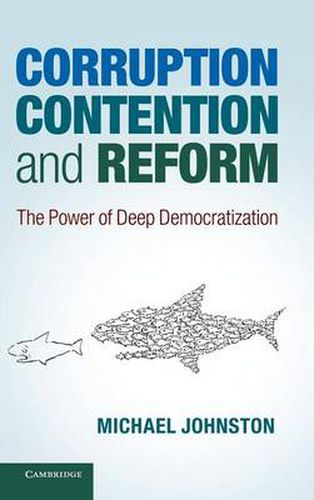Readings Newsletter
Become a Readings Member to make your shopping experience even easier.
Sign in or sign up for free!
You’re not far away from qualifying for FREE standard shipping within Australia
You’ve qualified for FREE standard shipping within Australia
The cart is loading…






Michael Johnston argues that corruption will persist, and even be the rule rather than the exception, until those with a stake in ending it can act in ways that cannot be ignored. This is the key principle of ‘deep democratization’, enabling citizens to defend their interests by political means. The author analyses four syndromes of corruption in light of this principle: official moguls in Egypt and Tunisia, oligarchs and clans in the Philippines, elite cartels in Argentina, and influence markets in France, Australia and the US. Johnston argues that different kinds of corruption require distinctive responses, each bearing specific risks. Focusing on recent events, including the global economic crisis and the Arab Spring, he shows that we can assess vulnerabilities to corruption and the effects of reforms, and use this information to identify new practices. His book offers a fundamental reappraisal of ways to check abuses of wealth and power.
$9.00 standard shipping within Australia
FREE standard shipping within Australia for orders over $100.00
Express & International shipping calculated at checkout
Michael Johnston argues that corruption will persist, and even be the rule rather than the exception, until those with a stake in ending it can act in ways that cannot be ignored. This is the key principle of ‘deep democratization’, enabling citizens to defend their interests by political means. The author analyses four syndromes of corruption in light of this principle: official moguls in Egypt and Tunisia, oligarchs and clans in the Philippines, elite cartels in Argentina, and influence markets in France, Australia and the US. Johnston argues that different kinds of corruption require distinctive responses, each bearing specific risks. Focusing on recent events, including the global economic crisis and the Arab Spring, he shows that we can assess vulnerabilities to corruption and the effects of reforms, and use this information to identify new practices. His book offers a fundamental reappraisal of ways to check abuses of wealth and power.